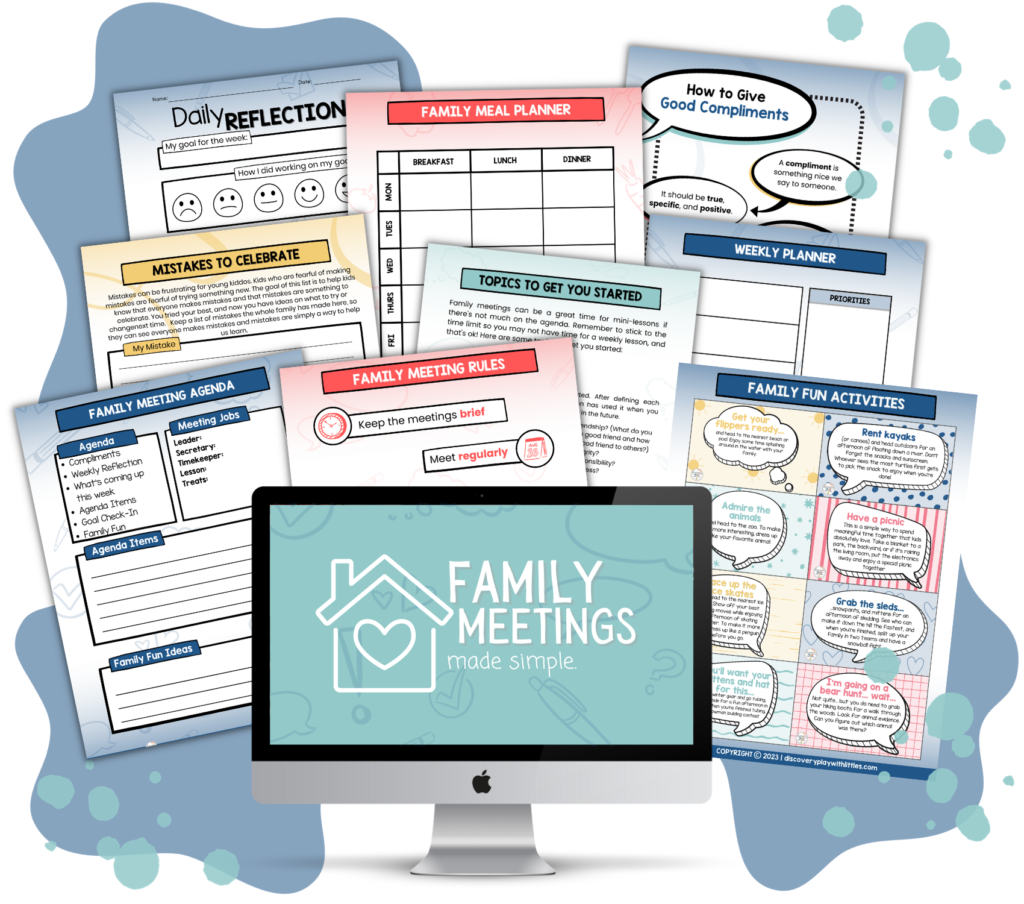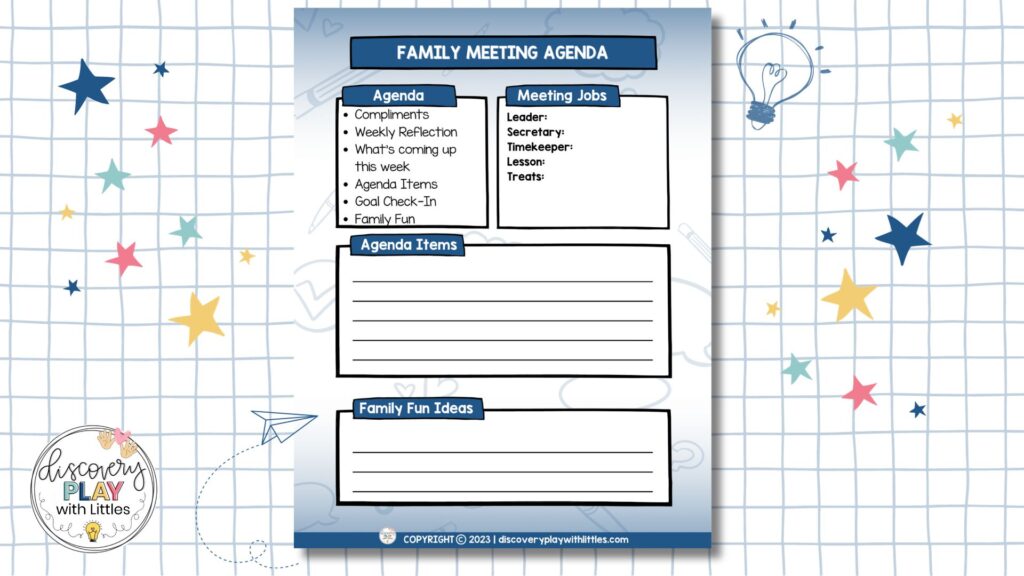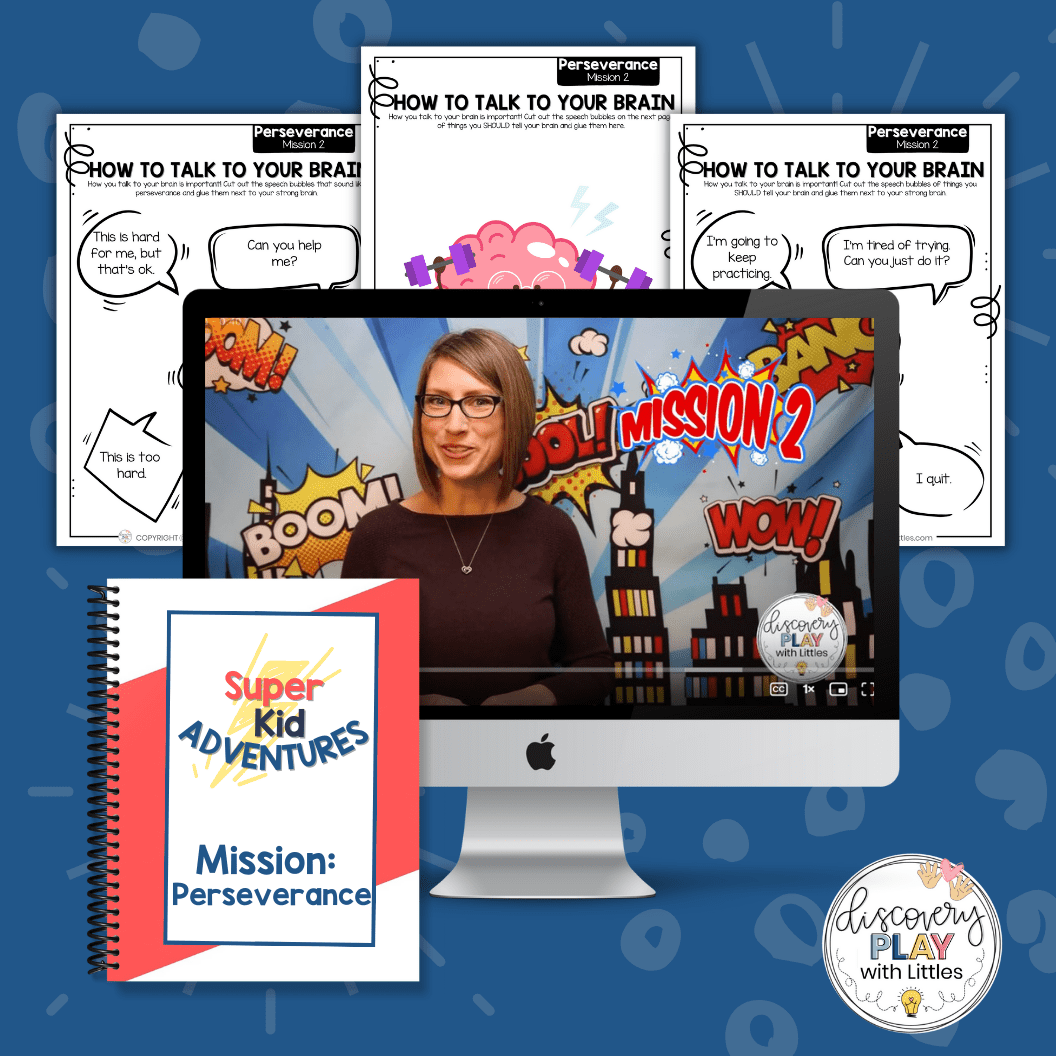I heard screams from the living room…
“NO! I had it!”
“It’s MINE!”
They were getting louder by the second. I don’t know what it is about screaming but it gets under my skin. My first reaction is to go in there and scream at them to stop screaming. Have you ever tried that? Fair warning: It doesn’t work in my house. Either my boys laugh at me, or they start crying hysterically.
It doesn’t solve any problems.
It doesn’t strengthen our relationship.
It doesn’t give them the power to solve their problems either.
And it most definitely does not model for them an appropriate way to handle frustration or solve problems.
So why is that my reaction?
I walked into the living room to see my oldest holding the ball I knew his 2-year-old brother had been playing with. He decided he wanted a turn, so he snatched it out of his brother’s hands.
My 2-year-old isn’t going to stand by and let that happen. And, this has happened before. He’s learned if he wants to be heard by his older brother, he has to get LOUD. And boy does he ever.
This time, instead of screaming at them, I simply stated “It looks like you two are having a problem, I wonder what your solution will be.”
And I walked out of the room. That feels SO weird. Like I’m the parent, the only one allowed to have the answers, and I need to be giving them a 10-minute lecture about how we “talk kindly” to our brothers and we “don’t treat people like that.” Like they needed ME to come up with a solution. Ha. Right.
So I walked out. Guess what happened.
They stopped screaming. And pretty soon I heard “I have an idea, what if I take a turn, and then, Caleb, you take two turns. Then I take two turns.”
“OK!” And they went on their merry way. Happily playing together.
I realized something as I was wondering what kind of voodoo I just stepped into. This wasn’t magic. It wasn’t some lucky random magical sentence I discovered on accident.
My boys have been training for this. We’ve been modeling for months how to solve problems—respecting EVERYONE’s solutions. We’ve been strengthening our problem-solving skills in our family meetings.
Throughout the week, I write problems we experience in a notebook, and on Sunday, we discuss them in our weekly family meetings. It has been a game-changer in a lot of ways.

Proven reasons family meetings are important
The idea of family meetings may feel a bit…hokey. I get it. Weekly meetings where we sit down and talk about our problems? It feels a bit long, emotional, and responsive. That doesn’t sound like anything I’d like to participate in.
I didn’t grow up with regular family meetings, so when I decided to try them, I had no idea where to start or what they should look like.
After using them for several months, (and a lot of experimenting and adjusting) we’ve discovered the many benefits of family meetings, and why they’re such a powerful tool for families.
>My boys are more willing to work together.
>This puts us all on the same team, instead of everyone just having to “obey because Mom said so”… we all have an important part to play on our team.
>We can agree on a solution we all feel is fair, and everyone feels respected.
> Family meetings build connection and closeness, build life skills, and teach your kiddos their voice is important.
>Family meetings are a great way to instill family values in your kiddos. They are the perfect time to not only solve problems but prepare your kiddos for situations they may encounter.
> Family meetings teach them the correct ways to solve problems with siblings (instead of just screaming at them and slamming doors).
> build their confidence.
So…how do you start family meetings?
Starting regular family meetings can be a bit overwhelming. It’s hard to know how to hold successful family meetings if you didn’t grow up with them yourself.
What are the most important things to put on the agenda? What should the time limit be? What do I do if we can’t agree?
Sure, you want the open communication and practice with problem-solving skills that family meetings provide, but it can be overwhelming to start. After all, can you even hold a meeting with a 2-year-old?
Yes, you can.
Meetings can be tricky with young kiddos, but rest assured there is no “right” way to do a weekly family meeting. They can be short, 10-15 minutes, and don’t have to be perfect. Starting them when your kids are even babies can set a strong routine in place of solving family problems together and creating connection.
Step 1: Choose a time for your family meetings. Family meetings should not be longer than 15 minutes, so the whole family can be present and engaged. It’s ok if you don’t get to everything on the agenda. The meeting is not meant to be long and drawn out.
When we started, I thought this had to be a formal time. I put it on the calendar and we tried to stick to it…but then meetings would get missed because we had other activities that crowded that time.
We’ve settled on Sunday evenings during dinnertime. We always eat together, so it’s the perfect time to hold our family meeting. It’s easy to hold regular meetings during a time when you know you’ll be home and together.
Step 2: Decide your ground rules, and make everyone aware of expected behavior for family meetings. No interrupting, kind words, and be respectful is a good place to start.
Step 3: Prepare an agenda. When you start, keep it simple. The first week simply talk about the rules and what a compliment is. Practice giving compliments to each other.
Add one section in a week. We like to give compliments to all family members, discuss family problems, and have some family fun.
We usually talk about our weekly schedule, and for older kids, asking for their help or opinions on meals can be a good thing to discuss. Remember, there is no right or wrong way to do this. Find what works for your family.

Grab your FREE Family Meeting Agenda
Family meetings can be the secret sauce that helps strengthen your family, teach problem-solving skills, and gives everyone a voice. Grab your Free Family Meeting Agenda to take the guesswork out of implementing your Family Meetings!
Family meeting agenda items
There are so many agenda items you could include in your family meeting. It doesn’t have to be anything complicated and there is no one right way to hold a family meeting.
Our Family Meeting Agenda looks something like this:
Set the timer for 15 minutes. Review the rules and expectations for the meeting.
Compliments: Each person gives a compliment to each family member. Compliments get everyone on the same team because we’re searching out the good in each other. It’s also a great way to breathe life-giving words into our kiddos because they are hearing from multiple people different things they did that were noticed and appreciated that week.
Weekly Reflection: We do a quick recap of the issues that were talked about last week and how our solutions are going. We can revisit any solutions that need to be tweaked.
We include personal reflection on what we think we improved or did well this week, what we need to do better, and how the other members of the family can help us. Talking about this gets everyone involved in helping each other grow.
Agenda Items: We discuss any family problems that are on the agenda. We talk about the problem, and all solutions are written on our problem-solving worksheet. After everyone is heard, we agree on a solution to try. We are only agreeing to try the solution for one week, and next week we will review the solution and change it as necessary.
Remind everyone of when the next family meeting will be held.
Family Fun: This is more than a fun way to end the family meeting, it’s the most important part of the entire thing. Family meetings should be a time of connection, and the family fun portion is a simple way to enjoy a fun activity and each other’s company. Ending the meeting on a positive note will help everyone look forward to the next family meeting.
Optional agenda items
Weekly Schedule: Since my boys are 6 and 2, we skip this part, and my husband and I talk about it after the family meeting is over unless there is something really big coming up like a vacation or days off school. For families with older children who have many extra-curricular activities, discussing the family calendar and upcoming events for the upcoming week may help align everyone’s schedules.
Goal Check-In: If you’ve made personal goals, this is a great time to check in with your family on how they’re going, and let them know how they can support you.
You can also make family goals. Maybe your family would like to spend 15 minutes every night doing a quick pick-up of the house before bed. Make it a goal, come up with a plan on how to accomplish it, and try it for a week. Check in during this time how it’s going and what changes you need to make for your new goal.
Meal Planner: Kids love to be part of meal planning. It shows them that their voice and opinions are important.
Mini-Lessons: If you don’t have anything on the agenda, you can use this time to teach a short mini-lesson. Our Family Meetings Made Simple kit has 30+ mini-lesson topic ideas to get you started.

Don’t make these mistakes
- Lecturing: Family meetings are a place for an open discussion, not a lecture from mom or dad. One member of the family taking over the discussion shows the others their voice isn’t as important.
- Going too long: Attention spans are short, so stick to the time limit agreed on, even if there are more items on the agenda. (See #3).
- Tackling too many problems: Some weeks are hard. Like, really, really hard …and you’ll end up with 10 family meeting topics on your agenda. It’s impossible to effectively solve that many problems in 15(ish) minutes, so don’t feel bad leaving discussion items for the next meeting. If you’re anything like me, you’ll want to solve all of the problems right away. The problem with this is change doesn’t come easy and mid-week you won’t be able to keep track of all the new routines you’re supposed to be trying. Keep it simple, tackle one or two problems at a time. The rest will be there next week, I promise.
- Not making sure everyone is heard: Family meetings are a great opportunity to make sure everyone has a voice and is a valued member of the family. To feel valued, each person must have an equal opportunity to share their thoughts.
- Giving up on family meetings: I get it. Family meetings can be hard, especially with young kids. It’s hard to find the time and to keep everyone focused and engaged. Remind yourself and other family members of the benefits. Keep with them and you’ll see your family bonds strengthened.
- Arguing instead of discussing: Again, this can be hard especially when dealing with complex issues or big emotions. Continue to remind everyone of the ground rules you’ve established and agreed on, one being to respect other’s ideas. Enter into discussions with an open mind, ready to hear other’s ideas, no matter how silly they seem.
- Not sticking to the rules: It’s tempting to let this slide, especially when younger kiddos are talking about something important to them. Holding the simple rules of family meetings is a good idea that’ll help your family meetings run smoothly.
Watch the family meetings be successful
Family Meetings have taken a lot off my plate…which, as a mama who can’t finish a cup of coffee without reheating it four times, is appreciated.
Like the time I told my family I felt lonely after dinner because after cooking and preparing the meal by myself, I was left to clean the kitchen by myself while my boys went with my husband to watch a show or play a video game together.
I felt a little guilty for bringing this up… it’s SO important for them to have special time with their dad. He’s gone before they wake up in the morning and usually doesn’t get home until a few minutes before dinner. They only have about an hour and a half with him before bedtime (including dinner and bath time).
My 6-year-old was the one with the solution to that problem. “What about family clean up?” he was so proud to offer his solution.
It gets better.
Because it was his solution, he has taken so much pride in helping clean up after dinner. There have been several times in the middle of dinner he’s gotten a twinkle in his eye as he whispered something to his dad. Then he proudly announces, “Mom, after dinner you go sit down and take a rest. Dad, Caleb, and I will clean the kitchen for you.”
What amazing thoughtfulness. All because he was aware of my problem, and took ownership of the solution.
Sticking with family meetings is the hardest part. Getting the entire family together for a dedicated time of conflict resolution and connection can be tricky with sports practices, music lessons, play dates, and busy schedules.
Implementing family meetings can help you build a positive family culture and make family meetings a positive experience for all members of the family, but most of all, they may just keep you from screaming at your kids because they’re screaming. I think there might be a better way to problem solve.
Don’t forget to grab your FREE Family Meeting Template by clicking here.
Want more?
If you’re looking for help starting your family meetings, check out Family Meetings Made Simple Toolbox.
You see, having a family meeting plan is a game changer, one that will help your kids have buy-in, create more harmony in your family and even create a sense of belonging and significance for all family members.
And that’s exactly what Family Meetings Made Simple offers.
Each easy-to-follow page includes instructions and templates you can start using right away so family meetings are actually worth your time.
No spending hours figuring out what to plan for your family meetings, all done for you in a simple-to-understand and engaging format.
Your Turn
Have you tried family meetings? What tips do you have to share?
Are you just starting out? What is your biggest hesitation?


